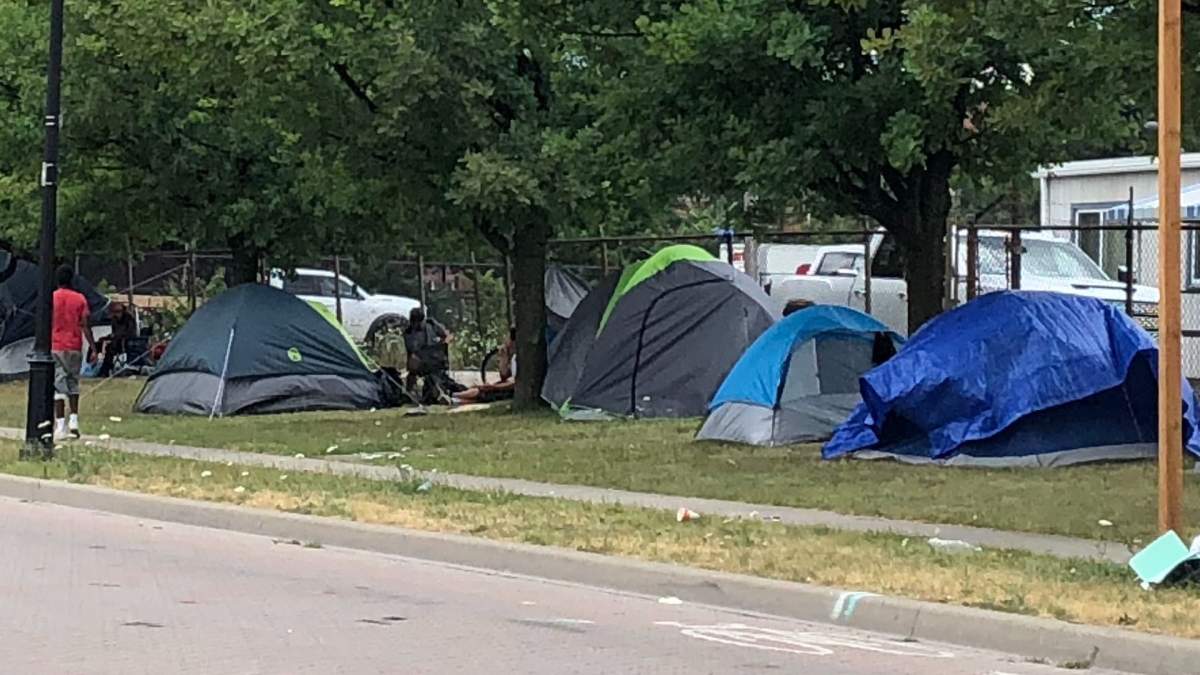The City of Hamilton has revealed a new protocol for how it will remove homeless encampments.

The six-step plan was presented to the emergency and community services committee on Thursday.
It’s a process that starts with a complaint being received by municipal law enforcement and ends with police involvement.
In the middle of the process is a housing-first street outreach team that aims to match homeless individuals with available supports. Acting general manager of healthy and safe communities Grace Mater says confrontation is “certainly not in anyone’s best interest or anyone’s desire.”
“We’ve had our discussions with Hamilton police,” adds Mater. “They are very committed to trying to find any way possible to avoid any kind of confrontational relationship when responding to this.”
The committee debate was preceded by a rally in the city hall forecourt, involving about 150 advocates for the homeless community on Thursday.
The discussions also came one week after the reinstatement of a pre-pandemic municipal bylaw banning tents and other structures from being erected in city spaces, including parks.

Get daily National news
Advocates like Marcie McIlveen of Keeping Six say the new protocol doesn’t tackle the root causes of the housing crisis, or a lack of capacity within Hamilton’s shelter system.
“If there’s absolutely no shelter space for people to go to, where are we moving them?” says McIlveen. “If we take a piece of nylon away, all that does is change the visibility.”
Dr. Jill Wiwcharuk of the Hamilton Social Medicine Response Team says “this is just becoming a bigger issue.”
“We’re seeing large buildings of residents that are being renovicted, I’m seeing people that have never experienced homelessness before, that are new to the system.”
Hamilton’s police chief says officers will only become involved “as a last resort” after all the support options have been exhausted.
Chief Frank Bergen told Global News that process would involve the issuing of a trespassing notice which can turn into a failure to comply charge precipitating an arrest.
However, the top cop says that’s something they would like to avoid.
“It can be accompanied with a charge, a ticket, but most likely we’re trying to do our best to find a resolution and look for an alternative for someone,” Bergen said.
- Public sector unions say nearly 10K employees got layoff notices this week
- ‘No standing back’ in Afghanistan, minister says after Trump NATO comments
- Bessent says an independent Alberta would be ‘natural partner’ for U.S.
- Canada’s sovereignty, economy key topics of Liberal cabinet retreat: ministers












Comments